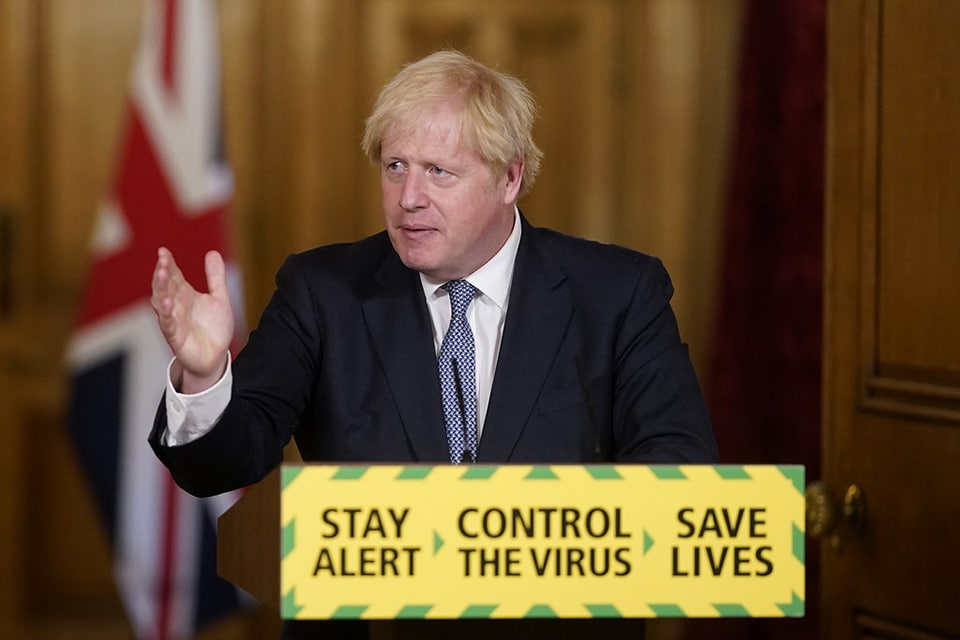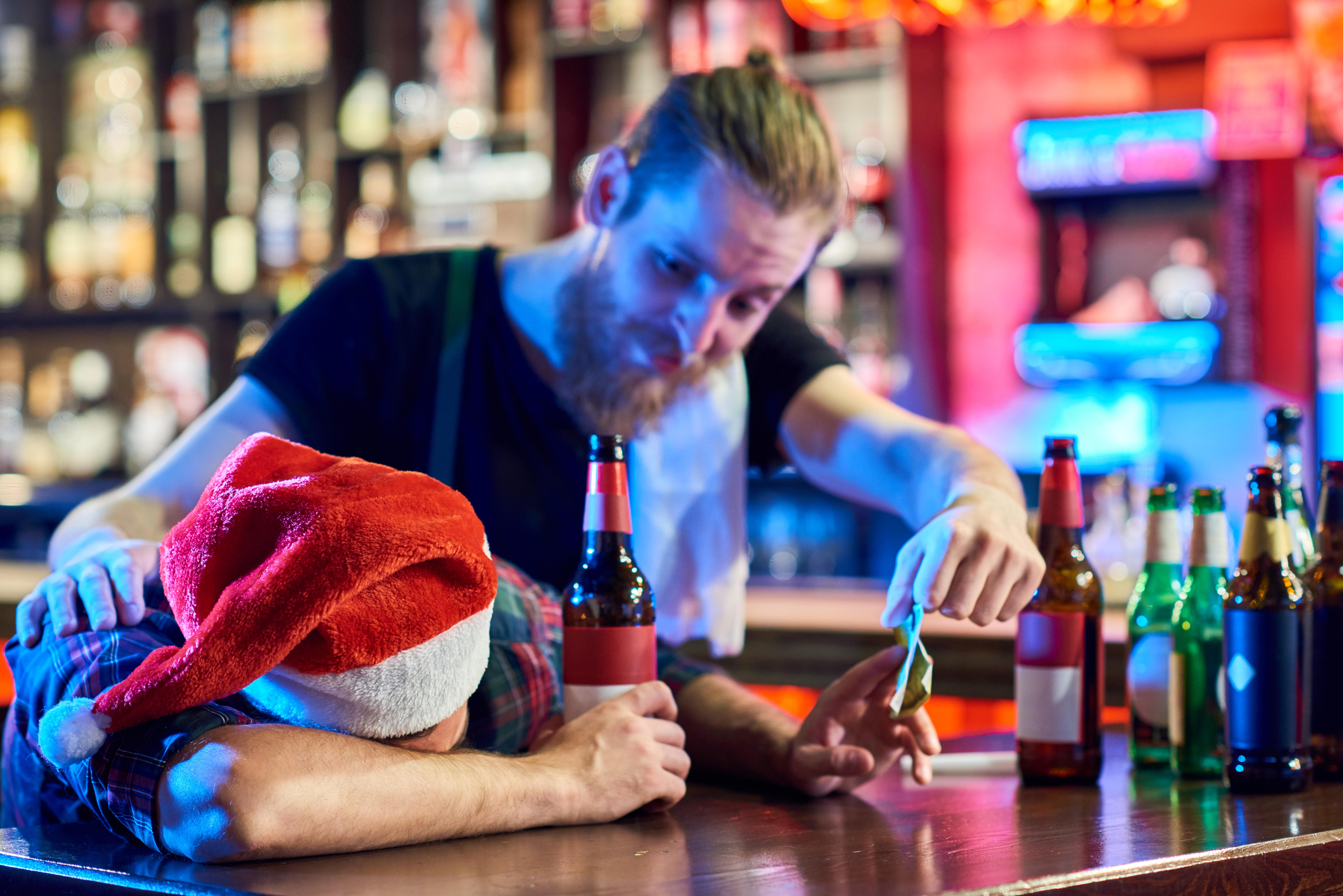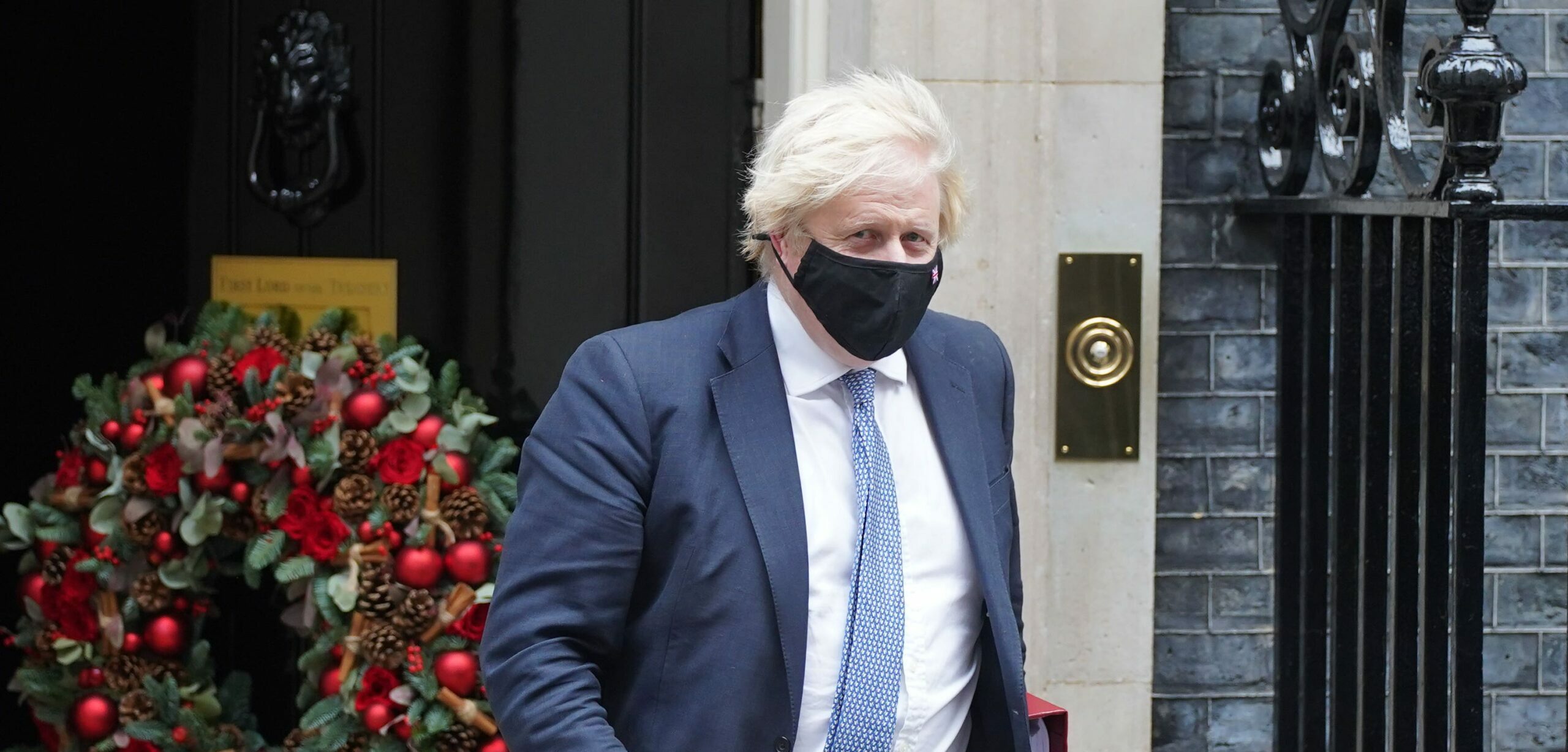
Many of us had been looking forward to a nearly normal Christmas party season this year, until the new Covid variant Omicron raised the scary prospect of super-spreading festive events once again.
But now it appears there may even have been a Christmas party at No 10 Downing Street last year, at the height of the pandemic, after video footage was released apparently showing aides joking about it.
So is it safe to have Christmas parties this year? Professor Jennifer Rohn, a cell biologist at University College London and an expert on viruses and Covid-19, thinks smaller gatherings may be OK if people are careful, but she would advise steering clear of big parties.

Should I go to a Christmas party?
Rohn says: “It depends on your situation – if you’ve had all your vaccinations you might be alright going to a party. Weigh up the risks, make sure everyone’s vaccinated, and take a test before you go.
“I would avoid big parties though – there’s no way I’d go to a massive event with loads of people there.
Omicron has been seeded in our country, it’s not everywhere yet, but the more people from different places that gather in one place, it’s more likely [it is] that Omicron will spread. I’m not going to any big events – even the pubs making me a bit nervous.
“The bigger the event, the more likely people from geographically dispersed locations will come and seed an Omicron event.”
How high is the risk of catching Covid at a party?
It all comes down to relative risk, explains Rohn. “For example, every time you get in a car, there’s a chance you’ll have a car accident, but you don’t stop going in a car because of that. Everything we do can have risks, and at this point we’re just weighing up how big the risk is.
“You might decide you’re going to have a nice Christmas with your family, as long as none of them are especially vulnerable.
You’re probably out and about anyway, going shopping and taking part in public life. I don’t think there’s a huge difference between going to the shops and having a small dinner party.
“We’re taking other risks – buying food, taking public transport, many of us are going to work. The difference between going to work and having a dinner party is pretty minimal, so unless you’re really self-isolating because you’re worried about your health, I don’t see a small party being much different to other things you’re probably already doing.”

Protect the vulnerable
As has been the case throughout the pandemic, people need to take special care with people who are particularly vulnerable, Rohn warns.
“I wouldn’t mix with anyone who’s very vulnerable at this point, but that’s the same advice I’d have given before Omicron,” she says.
“Delta was bad and I think nothing’s really changed for those sorts of people, unfortunately. If there’s an older person or an immunocompromised person in your family, you probably want to avoid mingling with them, even if everyone’s vaccinated, because a vaccine can’t always prevent transmission.
It can protect you from hospitalisation and death, but in some cases, you can still spread the virus.”
What about going to the pub around Christmas?
“It’s really down to your own personal feelings,” says Rohn. “For example, I’m probably going to go to a pub this weekend, I’ve had my booster, I’m going to take a lateral flow test before I go and my friends say they’ll do the same, and I feel reasonably comfortable.
“But on the other hand, I’m going to wear a mask on the way to the pub, and we’re going at a time when it won’t be too crowded, so there won’t be loads of people screaming over music – if you’re in a very loud pub, you have to talk very loud to be heard, and you have to get close to people to talk to them, and that can be quite dangerous. Pubs are tricky because there are lots and lots of people cheek by jowl.”

How transmissible is Omicron?
Rohn says early data continues to support the idea that Omicron is transmitting far more easily than Delta and it may overtake Delta in the UK within a few weeks. “The boosters are probably going to work pretty well, even against Omicron,” she says.
“We know they’re going to be reduced, but vaccines are more than about just preventing transmission, they’re also about the prevention of hospitalisation and death.
“Very early data from South Africa showed that people with Omicron tended to be less likely to be in ICU, had a shorter hospital stay, and were less likely to die. But the first wave was mostly young people, and that’s probably what you’d expect in that age group.
Anecdotally, the doctors down there are saying this really looks like it’s somewhat milder, and that would be a good thing.
“But on the other hand, it seems to be massively more contagious – the most contagious variant we’ve ever had. If [hypothetically] it’s 50% less deadly, but 500% more effective, you’re still going to get lots of people dying.
We don’t want to be complacent, this is still a killer virus, it’s just possibly blunted a bit, but we don’t know for sure – that will take a little bit longer to work out.
“Overall though, I think I’d be a lot less likely to go to the pub or larger indoor parties in the coming weeks, if it’s crowded or shouty and poorly ventilated. I still think it’s reasonably safe to have family parties – consider cracking the window open, taking a lateral flow test, being double vaccinated and boosted, and meet outdoors if possible.”





